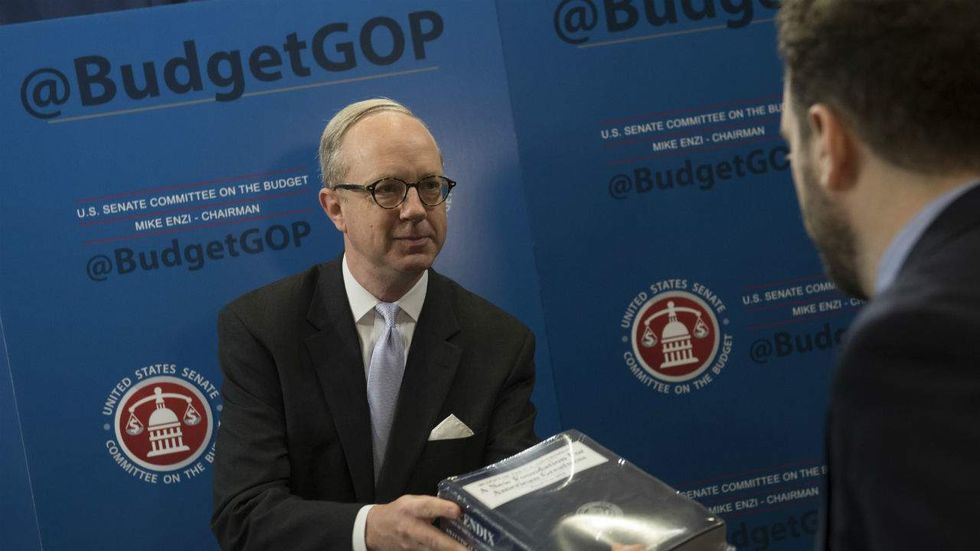
SAUL LOEB / Staff / Getty Images

The following was written by Rep. Bruce Westerman (R-Ark.)
The federal government has a spending problem. The U.S. Government Accountability Office (GAO) reports the simple, sober truth: “The federal government is on an unsustainable fiscal path.” Programs like Medicare and Social Security face insolvency in just a few short years. Meanwhile, the high level of debt reduces investment, productivity, wages, and the incentive to work, shrinking the economy.
This year, the federal government is projected to bring in more than $3.3 trillion in taxes – the highest level ever. But, because the government will spend more than $4 trillion – again, the highest level in our nation’s history – the deficit will increase to approximately $700 billion.
The growth of spending in recent years has been astronomical. In 1970, the entire federal budget was less than $200 billion – less than one quarter of what we spend on just welfare programs today. The trillion-dollar mark was not reached until 1987. It took until 2002 to reach $2 trillion, but only until 2009 to top $3 trillion. Just six years later, we are recording our first $4 trillion year.
Even measured as a percentage of GDP, spending is above its historical average and is projected to continue growing. Revenues are currently just under their average levels as a percent of GDP, but will rise above the average just next year and continue increasing after that. To return federal spending back to the average, total outlays would be required to shrink by $4.5 trillion over the next decade. Instead, under current law, the federal government will continue to grow to 23.4 percent of GDP, and nearly $10 trillion will be added to the national debt by 2027, with no end to the red ink in sight.
The GAO reports that just to hold the debt to GDP ratio constant over the long term under the current spending path would require revenues 33 percent higher than currently projected, each year, for the next 75 years. Attempting to impose this type of tax increase – which would total more than $1 trillion this year and even higher in the future – would cause an economic meltdown.
Of course, the growing federal government and debt has significant negative consequences for the country and its people. The Congressional Budget Office has specifically warned that “The likelihood of a fiscal crisis in the United States would increase” if Congress fails to reverse its course soon. This crisis would freeze credit markets, grind the world’s economy to a halt, and make the 2008 Great Recession look like a walk in the park.
Perhaps most importantly, when the federal government is too big and too intrusive, it ultimately interferes with our unalienable rights to life, liberty, and the pursuit of happiness and becomes the essence of the central authority our founders rejected.
It is with these challenges in mind that the Republican Study Committee (RSC), the caucus of conservatives in the House, puts forward its budget proposal, "Securing America’s Future Economy."
The RSC budget addresses the problem head on.
The budget would fully repeal Obamacare and replace it with real reforms based on the RSC’s American Health Care Reform Act and build on the American Health Care Act. It includes reforms to save and improve Medicare, providing choices for coverage and lower costs. The budget also recommends implementing the Social Security Reform Act, which would ensure Social Security is solvent. It would bring the myriad spending programs that are currently on automatic pilot and sending the nation toward bankruptcy, back under control. Finally, this budget would limit non-defense discretionary funding to appropriate levels by refocusing spending to constitutional duties.
In total, the RSC Budget would reduce spending by $10 trillion over the next decade compared to current law and attains balance in President Trump’s second term. This budget makes the hard choices that are necessary in order to get our fiscal house in order, avert a fiscal crisis, and begin the process of "Securing America’s Future Economy."
Facebook and Twitter: @RepWesterman
BlazeTV Staff